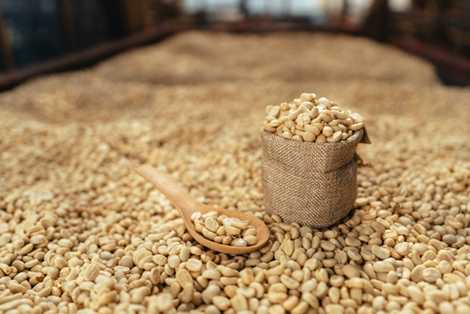PATROCÍNIO, Brazil – The Cerrado Coffee Growers Cooperative (Expocacer) has already exceeded the number of coffee exports by 20% compared to the previous absolute record that was registered in 2020. According to the cooperative, more than 310 thousand 60kg bags have been shipped so far this year, which represents more than US$70 million.
The record of coffee exports
The expectation is that around 480 thousand bags will be exported by the end of this year. The cooperative believes that the next harvest will be even better. Currently, the region produces approximately 15% of the entire country’s coffee.
These positive results come at a significant time for Expocacer, as they celebrate their 30th year of operation.
According to Fernando Beloni, President of Expocacer, this year’s achievements are a result of a harmonious effort with society and the environment. “We acknowledge global transformations and emerging market trends. We combine this with the conservation of agricultural systems and ecosystems where coffee is grown, which is the key to achieving high production and quality coffees, attracting the attention from countries around the world.”
According to the Global Consumer Insights Pulse survey conducted in 25 countries by PwC, ESG concerns currently influence the purchasing decisions of half of consumers. This enduring trend also explains why the cooperative has garnered significant interest in its unique projects in regenerative and carbon-neutral coffee farming.
In addition to meeting the demands of conscious consumers, coffee produced with regenerative practices establishes more ethical and fair trade relationships throughout the production chain, aligning with the sustainability agenda of the market.
Last year, the cooperative exported the world’s first industrially processed coffee with regenerative agriculture certification, and now they have obtained the certification for an additional twelve cooperative members.
This group represents 21 farms, equivalent to 4,644 hectares, with 2,364 hectares of certified coffee in this area. The audit is conducted by Regenagri, an international program that aims to ensure soil health and preservation, certified by the English Control Union.
Impact
Regenerative coffee farming adopts practices that aim to preserve soil health, increase biodiversity, protect water resources, and enhance agricultural system resilience.
Some advantages of regenerative practices include the preservation of flora and fauna, cost reduction, pollution reduction, improved coffee quality, greater resistance to climate change, and reduced deforestation.
“Our strategy aligns with emerging demands, not only in the coffee market but primarily with a focus on the production and consumption chain. We emphasize the promotion of regenerative ideas through transparent dialogues, collaboration, commitment to equity, and awareness of the positive impact on the future of people and the planet,” says Simão Pedro de Lima, Executive Director of Expocacer.
About Expocacer
Founded in 1993 and located in Patrocínio/MG, the Cerrado Coffee Growers Cooperative (Expocacer) promotes the quality of coffee and the work of its members in Brazil and worldwide through significant socio-environmental initiatives that stimulate the economy of the entire region.
The cooperative’s infrastructure includes two warehouses with a capacity for over 1 million bags. Currently serving 680 producers, they export to more than 30 countries across all five continents.















